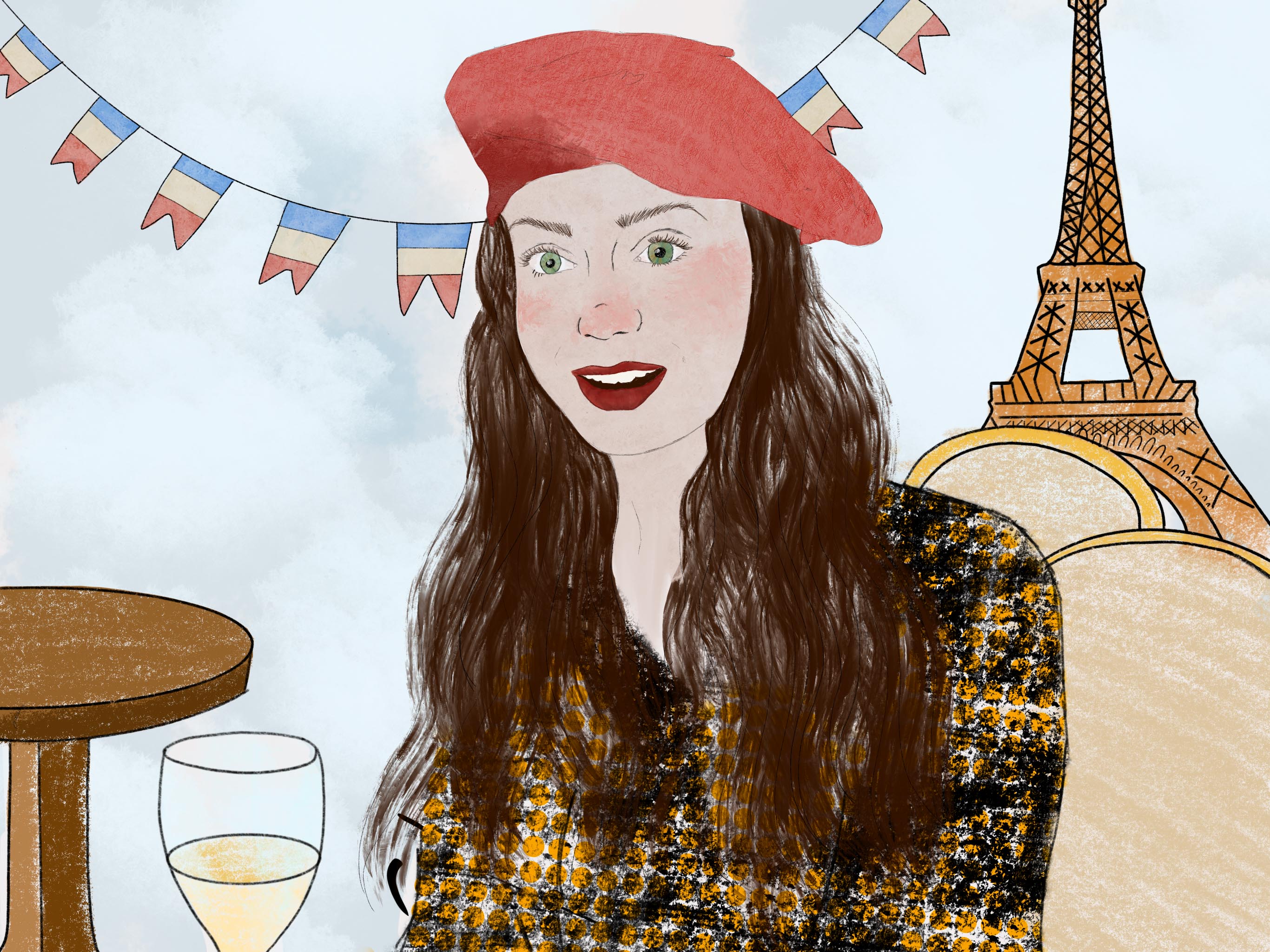Netflix’s latest release, Emily In Paris, is a plethora of generic tropes, teeming with cultural stereotypes, questionable outfits, and overused plot lines that induce eye-rolls from even the most charitable of viewers. I binged it in two days.
The show revolves around 20-something-years-old American marketing extraordinaire Emily Cooper, played by Lily Collins, who, over the course of 10 episodes, is sent to her company’s Paris branch and becomes enamoured with the city of love. When I started the series, I did not realize that I would embark on a tumultuous journey: One that began with skepticism and second-hand embarrassment of my American citizenship, but ended with my undying devotion to every character and a desperate hunger for season two.
I consulted with Parisian resident and subsequent Paris expert Louise Lienhart, U4 Arts, to learn more about what the show portrays correctly about Paris, and what it misrepresents.
“I think [the show] exaggerates a lot of stereotypes that have been said about Parisians,”
Lienhart said in an interview with The McGill Tribune. “It’s obviously romanticized. It’s always the fancy, polished streets of Paris [that are shown].”
Indeed, while Emily is pictured strutting in front of the Louvre, lounging in cafés, and strolling along the Seine, it appears as though Paris’ more mundane and dilapidated environs, like its metro, simply do not exist. On social media, the show’s beautified city has ignited Parisian viewers’ creativity and meme-making, as they laugh at the absence of Paris staples like manic drivers, overpriced odd jobs, and street pick-pockets.
Although the city itself is hyper-idealized, the show’s Parisians are far from it. Emily In Paris’s French characters are essentially built from oversexualized and heteronormative stereotypes. It appears that Paris’ charm lies in its overabundance of drop-dead gorgeous men and women at every turn, be it in Emily’s apartment building, workplace, or even local cafés.
“You think about ‘Paris, city of love’ and the show is making it this whole hypersexualised affair,” Lienhart said. “[The show’s] Parisians seem to always be ready to choose pleasure over work, and have a hard time separating their private life from their professional one, which is not [true in] my experience.”
Emily’s boss, a Miranda Priestly-like executive named Sylvie, is depicted as a snobbish, stubborn antagonist, constantly attempting to sabotage Emily out of sheer spite. Sylvie flirts with clients, has an affair, and meddles in Emily’s own love life. Although obviously an exaggeration for entertainment purposes, this storyline feels distinctly questionable for Lienhart.
“French people are more subtle than this in terms of their private affairs. I actually think they Americanized her a little bit,” Lienhart said, drawing on the outlandishness and rudeness of Sylvie’s characterization.
Lienhart especially notes that Paris is actually more modest than it appears, as she recalls the juxtaposition between Parisian and Montrealaise cultures.
“I had the contrary effect coming to Montreal, where I felt people were more overt about their appearances and private lives, whereas in Paris, I find myself dressing more modestly,” Lienhart said. (Lienhart has declined all requests to start a @LouiseInMontreal blog.)
Emily In Paris’s cultural ambivalence is not-quite-Parisian, yet not-quite-American. It commits itself to a French aesthetic, yet depicts its French characters through an Americanized lens of exaggeration and drama, resulting in a hybrid Paris with a Sex In The City-esque tone. Regardless of questionable stereotypes and inaccurate portrayals, Emily In Paris still manages to charm and entertain. Full of fashion and sex, the show creates an escapist fantasy of an idealized Paris. It makes fun of itself, bringing laughs rather than offense, and reminds viewers not to take life too seriously. Ultimately, it is not the accuracy of American or French culture that viewers will remember, but the endearing fantasy and silliness of Emily, her boss, and the labyrinth of romantic relationships they navigate. According to Emily In Paris, charm and goofiness will always override accuracy—and viewers will adore it.








